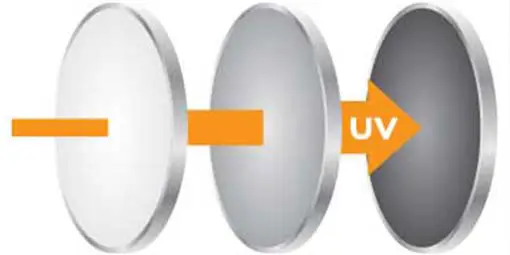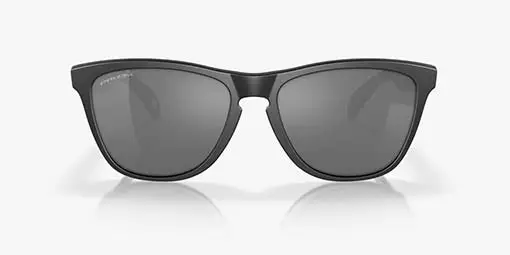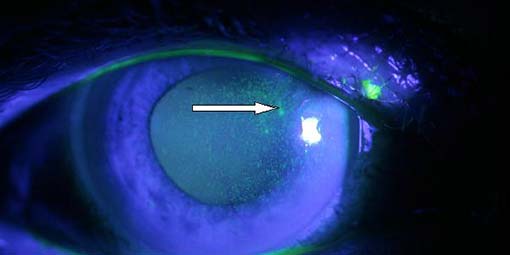Photokeratitis
15-07-2016
Photokeratitis is a painful eye condition that occurs when your eye is exposed to ultraviolet (UV) light, either from the sun or from a man-made source. Photokeratitis essentially like having a sunburned eye. This condition affects the thin surface layer of the cornea — the clear front window of the eye — and the conjunctiva, which is the cell layer covering the inside of the eyelids and the whites of the eye.
Photokeratitis can be caused by sun reflection from sand, water, ice and snow. It can also result if one stares at the sun directly, such as during solar eclipse, without using special eye wear or protective devices. A solar eclipse can also cause a burn to the retina, which is long lasting and considerably more serious than temporary corneal damage. In addition to the sun, there are also many man-made sources of UV light that can burn one's eyes. These include tanning lamps and tanning beds, along with arc welding.
Similar to a sunburn on one's skin, photokeratitis is not typically noticed until well after the damage has occurred. Symptoms include: pain, redness, blurriness, tearing, gritty feeling, swelling, sensitivity to bright light, headache, small pupils,twitching eyelids and on rare occasions, vision loss. Generally, the longer one is exposed to UV rays, the more severe the symptoms will be.
Photokeratitis usually heals on its own, so treatment is mainly focused on making one feel better as the eyes heal.
Individuals that contact lenses should remove them immediately and get out of the sun and find a dark room. Relief may be achieved by placing a cold washcloth over closed eyes, applying artificial tears, taking particular pain relievers (as recommended by an optometrist) and/or by taking eye drop antibiotics (as prescribed by an optometrist). Individuals should avoid rubbing their eyes as they heal. Symptoms typically go away gradually in a 24 to 48 hours.
Wearing proper eye protection can prevent damage to the eyes from UV rays. UV blocking sunglasses and snow goggles along with welding helmets can prevent Photokeratitis.
Schedule An AppointmentFYEyes Blog Posts

Photochromic Lenses: Pros and Cons
Photochromic lenses are 2-in-1 solution with several pros and cons.

Transitions vs. Transitions XtrActive Lenses
Understand the difference between Transitions and XtrActive lenses.

Polarized Sunglasses
Looking to minimize glare and reduce eye strain? Polarized sunglasses may be for you.

The Benefits of Wearing Sunglasses
Sunglasses offer numerous health benefits. Learn more.

Adult Eye Exams
Our advanced eye exams consist of 25+ modern tests and digital scans to assess eye health, function, and visual acuity.

Child Eye Exams
Give your child a clear future with an annual eye exam from our experienced Edmonton optometrists.

Senior Eye Exams
Maintain your vision through your golden years with gold standard eye care from the optometrists at our Edmonton eye clinic.

Contact Lens Eye Exams
Our eye exams for contact lens wearers include test and digital scans to assess eye health, function, visual acuity, and lens fit.

Diabetic Eye Exams
Managing diabetes requires regular eye exams to ensure that diabetes is not causing irreversible vision loss.

Dilated Eye Exams
Dilating the eyes enables our Edmonton optometrists to see more of the eye so that you many never see less.
Our Edmonton Eye Exams Are Comprised Of 4 Phases Of Evaluation

1. Eye Exam Pre-Testing
Corneal Thickness | Intraocular Pressures | Visual Field
Pre-testing is a detailed process that gathers all necessary information for the optometrist in advance of the optometrist-administered eye examination. This process involves completing a detailed patient history, as well as a series of standard tests. Pre-testing is an essential part of the comprehensive eye exam process, providing valuable information and visuals for both the optometrist and the patient.
More About Pre-Testing »
2. Advanced Diagnostic Testing
Retinal Photography, OCT, Topography
eye-deology Vision Care differentiates itself from other clinics by having the most advanced modern diagnostic specialty testing equipment. Specialty equipment, such as a wide-angle high-resolution retinal imager, Optical Coherence Tomography (OCT), Humphrey Visual Field Analyzer and corneal topographer, ensures that patients receive the best comprehensive eye care.
More About Advanced Testing »
3. Optometrist Examination
Health Assessment & Disease Diagnosis
eye-deology Vision Care Edmonton optometrists perform a multitude of tests and assessments to evaluate ocular health, eye coordination, and visual acuity. In addition, they also evaluate the results of the tests and scans performed during pre-testing. As part of patient education, our optometrists also take the time to show and explain results to patients.
More About Doctor Exam »
4. Eye Glass Consult
Prescription | Lens Selection | Digital Fitting
If you require corrective lenses to improve your vision, our licensed opticians will customize their fit to your unique attributes, needs, lifestyle, and budget. Our opticians are happy to provide you with information about the latest eyeglass frame and lens technologies available so you can make informed decisions and begin seeing and looking your best.
More About Eyewear Consult »